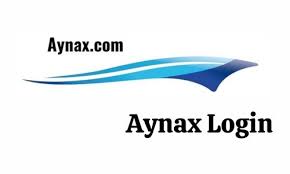Table of Contents
Crypto User Protection Guide: Best Practices to Safeguard Your Assets: Cryptocurrency has become a popular way to store, transfer and trade wealth. However, with the growth in popularity, there has also been an increase in malicious actors looking to steal and exploit vulnerabilities. To help protect yourself and your assets, it is crucial to understand the risks and adopt best practices.:

Crypto User Protection Guide: Best Practices to Safeguard Your Assets
I. Understanding the Risks
- Phishing Scams Phishing scams are one of the most common ways for hackers to steal your assets. They involve tricking you into providing sensitive information, such as passwords and private keys, through fake websites, emails, or messages.
- Malware Attacks Malware attacks are another common threat in the crypto world. Hackers can infect your computer or mobile device with malware to steal your private keys or monitor your transactions.
- Exchange Hacks Exchanges are vulnerable to hacks, and if an exchange is hacked, your assets stored on the exchange can be stolen.
II. Best Practices for Protecting Your Assets
- Use Strong Passwords and Enable Two-Factor Authentication The use of strong passwords and two-factor authentication can significantly increase the security of your accounts. A strong password is one that contains a mixture of upper and lowercase letters, numbers, and symbols.
- Store Your Private Keys Safely Your private keys are the keys to your assets. It is important to store them securely, either by writing them down on a piece of paper and storing it in a secure location, or by using a hardware wallet.
- Use Trusted Exchanges and Wallets When choosing an exchange or wallet, it is important to research the reputation of the platform and ensure it has a solid track record of security.
- Keep Your Software Up-to-Date Keeping your software up-to-date is important for the security of your assets. Updates often include security patches to fix vulnerabilities.
- Be Careful with Email Requests for Sensitive Information Be cautious when receiving emails requesting sensitive information, such as passwords or private keys. Legitimate companies will never request this information via email.
Frequently Asked Questions (FAQ)
What is the best way to store my private keys?
The best way to store private keys depends on the individual’s security needs and preferences. Some options include writing down the keys and storing them in a secure location, using a hardware wallet, or storing them in a password-protected digital file.
How can I protect my assets from exchange hacks?
To protect your assets from exchange hacks, you can follow best practices such as using trusted exchanges with a solid track record of security, enabling two-factor authentication, and storing the majority of your assets in a hardware wallet.
Is it safe to store my assets on an exchange?
Storing assets on an exchange can be convenient, but it is important to remember that exchanges are vulnerable to hacks. To minimize the risk, it is recommended to store the majority of your assets in a hardware wallet and only keep a small amount on the exchange for trading purposes.
Final Words:
Cryptocurrency has the potential to provide a new level of financial freedom and security, but it is important to understand the risks and adopt best practices to safeguard your assets. By following the tips outlined in this guide, you can help protect yourself and your assets from the potential dangers of the crypto world.


